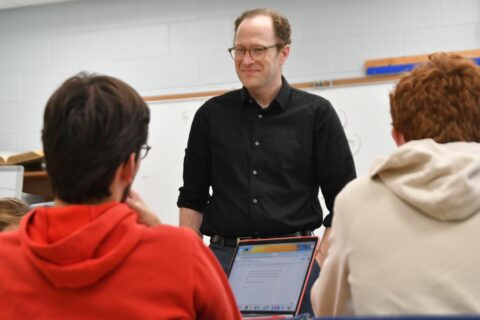Author: Ed Cunliff, University of Central Oklahoma
College professors like me are often hired for their content expertise. While I know my course material I also love what I teach, which currently is adult and higher education. But I often wonder if what I am teaching is sticking in each of my students’ brains. Fortunately, I am at a university that prioritizes teaching as much as research, which affords my colleagues and me to learn more about the art and science of university teaching.
My interest in the neuroscience of learning actually started very early, as some of my colleagues and I brought a right brain – left brain (which we know is a neuromyth) “guru” to Oklahoma City for some professional learning. Thankfully, as time went by, I studied more about how we learn from a more scientific perspective. While some of my teaching and learning strategies changed, some were affirmed or “tweaked” such as being more intentional about interleaving content for memory retention and low stake quizzes. Areas that I had not explored, while working with adult learners at the collegiate level were now taking on great relevance for me, such as the significance of sleep and approaches to improving memory. I find myself with a stronger sense of the importance of classroom safety by creating a sense of belonging for all students and with better use of metacognitive strategies.
I believe I’ve become a better educator, and learner through my studies of Mind Brain Education (MBE) and have enjoyed working with other faculty across disciplinary boundaries at the University of Central Oklahoma. We know and love what we teach, and each student we work with. Together we are working more at using research-informed strategies from organizations such as the Center for Transformative Teaching and Learning (CTTL) and the International Mind, Brain, and Education Society (IMBES) to enhance how we teach. I hope other professors will take a similar journey in the interest of enhancing how they support each student’s college experience and academic outcomes.
*If you’re interested in starting your MBE journey or enhancing your teaching skills and knowledge about how the brain learns, check out the Science of Teaching & School Leadership Academy today.




